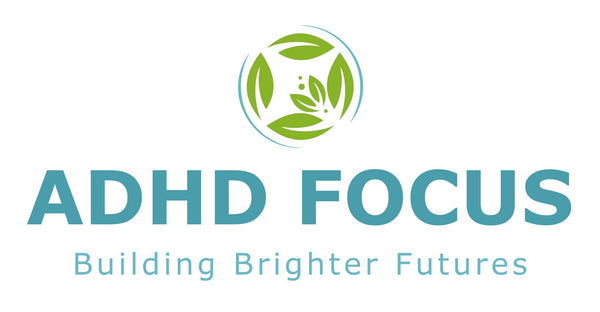
Understanding ADHD: Symptoms, Causes, and Alternative Treatments
Share
Attention Deficit Hyperactivity Disorder (ADHD) is a common neurodevelopmental condition affecting both children and adults. It can impact various aspects of daily life, from academic performance to personal relationships. In this article, we’ll explore the symptoms, causes, and alternative treatments for ADHD to help you gain a better understanding of this complex condition.
What Are the Symptoms of ADHD?
ADHD symptoms are typically divided into two categories: inattention and hyperactivity-impulsivity. While these symptoms can vary from person to person, they commonly include:
Inattention:
- Difficulty maintaining focus on tasks or activities.
- Frequently making careless mistakes in work or schoolwork.
- Losing track of belongings such as keys, stationery, or school supplies.
- Struggling to follow through on instructions or complete tasks.
- Being easily distracted by external stimuli or irrelevant thoughts.
Hyperactivity-Impulsivity:
- Fidgeting or an inability to remain seated.
- Excessive talking or interrupting others.
- Difficulty waiting for one’s turn in group settings.
- Engaging in risky activities without considering consequences.
- Feeling restless or "on the go," as if driven by an internal motor.
Symptoms may begin in childhood and persist into adulthood, often leading to challenges in both professional and personal settings if left unaddressed.
What Causes ADHD?
The exact causes of ADHD are not fully understood, but researchers believe a combination of genetic, environmental, and neurological factors plays a role.
- Genetics: ADHD often runs in families, suggesting a strong genetic link. Studies have identified several genes associated with the condition.
- Brain Function and Structure: Differences in brain activity and structure, particularly in areas responsible for attention and impulse control, have been observed in individuals with ADHD
- Environmental Factors: Exposure to toxins like lead, smoking or alcohol use during pregnancy, and premature birth may increase the risk of developing ADHD.
- Diet and Lifestyle: While not a direct cause, certain dietary and lifestyle factors, such as excessive sugar intake or lack of sleep, may exacerbate symptoms.
Conventional ADHD Treatment Options
Managing ADHD often requires a multi-faceted approach. Conventional treatments aim to reduce symptoms and improve functioning in daily life. Here are the most common treatment options:
1. Herbal Remedies:
Natural remedies can be an effective and gentle option for managing ADHD symptoms. Consider the following products:
- MindSoothe Jr. Herbal Mood Tonic: Helps promote emotional balance and calmness in children with ADHD.
- BrightSpark for Hyperactivity: Designed to address hyperactivity and impulsivity naturally.
- Focus & Calm for Concentration: Supports focus and concentration, making it ideal for academic and everyday tasks.
2. Behavioural Therapy:
Therapy focuses on teaching individuals skills to manage their symptoms. For children, this might involve learning to follow routines or improve social interactions. For adults, it can include time management and organisational strategies.
3. Parent Training and Education:
Parents of children with ADHD may benefit from specialised training programmes that teach techniques to manage behaviours and support their child’s development.
4. Educational Support:
School-based interventions, such as Individualised Education Programmes (IEPs), can help children with ADHD succeed academically by tailoring support to their needs.
5. Lifestyle Changes:
Adopting a healthy lifestyle can complement other treatment methods. This includes regular exercise, a balanced diet, and consistent sleep routines to promote overall well-being.
Final Thoughts
ADHD is a complex condition, but with proper understanding and management, individuals with ADHD can thrive in various aspects of life. If you or someone you know is struggling with ADHD symptoms, consider consulting a healthcare professional to explore the best treatment options for your needs.
By raising awareness and providing support, we can create a more inclusive environment for individuals living with ADHD.
